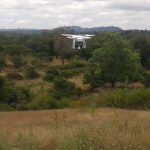 Drones and other autonomous technologies may seem out of place in the natural world, but new research from the University of Leeds highlights the significant impact they can have, especially in and around cities.
Drones and other autonomous technologies may seem out of place in the natural world, but new research from the University of Leeds highlights the significant impact they can have, especially in and around cities.
For instance, the study shows that these technologies can transform how we monitor nature, helping to identify emerging pests, and ensuring that people are engaging with the natural world that surrounds them.
Equally, the authors argue that the growth in robotic and autonomous technology could result in pollution and traffic congestion reduction, which would make towns and cities nicer places to live and to spend time outside.
Harmful impact
The technologies may not be always benign, of course, and the paper highlights how robots and drones could create a whole new source of pollution and waste.
Indeed, it’s quite likely that cities will need to be significantly re-planned to adapt to the age of robots. If not done carefully, this could result in a reduction in green space, while also worsening existing social inequalities that often limit access to such space for the poorest in our communities.
“Technology, such as robotics, has the potential to change almost every aspect of our lives,” the researchers say. “As a society, it is vital that we proactively try to understand any possible side effects and risks of our growing use of robots and automated systems.”
A growing risk
The study involved a survey of 170 experts from 35 countries, with participants giving their opinion on the potential opportunities and risks for urban biodiversity from the growth in autonomous technologies.
The wide range of autonomous technologies have a number of possible use cases, including transportation, waste collection, policing, and infrastructure maintenance.
“Spending time in urban green spaces and interacting with nature brings a range of human health and well-being benefits, and robots are likely to transform many of the ways in which we experience and gain benefits from urban nature,” the researchers explain.
“Understanding how robotics and autonomous systems will affect our interaction with nature is vital for ensuring that our future cities support wildlife that is accessible to all.”